Did you know that Malta, a small Mediterranean island nation, hosts a remarkable array of protected areas that are home to a diverse range of plant and animal species? These sacred natural sites not only hold immense cultural and spiritual significance but also play a crucial role in the conservation of biodiversity. With their unique blend of ecological and cultural heritage, these sites are a hidden ecological treasure waiting to be explored and preserved.
Key Takeaways
- Malta is home to a diverse range of protected areas that are crucial for biodiversity conservation.
- Sacred natural sites in Malta hold both cultural and ecological value.
- Preserving these sites ensures sustainable management of Malta’s natural heritage.
- These sites provide habitats for a wide range of plant and animal species.
- Sustainable tourism can be promoted through the conservation of these sites.
The Delos Initiative and Sacred Natural Sites
The Delos Initiative, launched by the IUCN World Commission on Protected Areas, focuses on sacred natural sites in technologically developed countries. This initiative seeks to understand and promote the relationship between spiritual, cultural, and natural values that these sites embody.
In the beautiful landscapes of Malta, the University of Malta has joined forces with the Delos Initiative to explore case studies related to Islam and other living religions. This collaboration aims to deepen our understanding of the cultural landscapes in Malta and their significance to the spiritual practices of different communities.
By studying diverse sacred natural sites, the Delos Initiative and the University of Malta contribute to the development of updated guidelines on Sacred Natural Sites by the IUCN. Through their research, these organizations are working towards protecting and preserving the cultural and ecological richness of Malta for future generations.
The Significance of Himas in Malta
Himas are conserved areas in Malta that are based on Islamic principles. These sites have significant spiritual and religious value and are integral to the cultural landscape of Malta. The Society for the Protection of Nature in Lebanon (SPNL) has played a key role in reviving the Hima approach in Malta. Since 2004, the SPNL has helped establish 18 Himas in important bird and biodiversity areas, contributing to both conservation efforts and the preservation of traditional Maltese conservation practices.
“Himas are not just important for their ecological significance but also serve as living examples of the coexistence of diverse cultural and religious values with conservation practices,” says Dr. Luciano Pecchia, a renowned environmentalist and researcher.
The revival of Himas in Malta has allowed for the sacred and cultural traditions of the Maltese people to be preserved while also promoting biodiversity conservation. These areas not only provide a sanctuary for flora and fauna but also act as a connection between people, nature, and spirituality. By safeguarding these sites, the Maltese community is actively contributing to the global effort in sustainable conservation practices.
Himas in Malta
| Hima Name |
Location |
Established Year |
| Għadira Nature Reserve |
Mellieħa |
2004 |
| Tal-Baħrija |
Malta |
2006 |
| Il-Majjistral Nature and History Park |
Northwestern Malta |
2008 |
| Ta’ Ħaġrat Temples |
Mgarr |
2010 |
| Is-Simar Nature Reserve |
Qrendi |
2012 |
| Għajn Tuffieħa and Ġnejna Bay |
Mgarr |
2014 |
| Dwejra |
Gozo |
2016 |
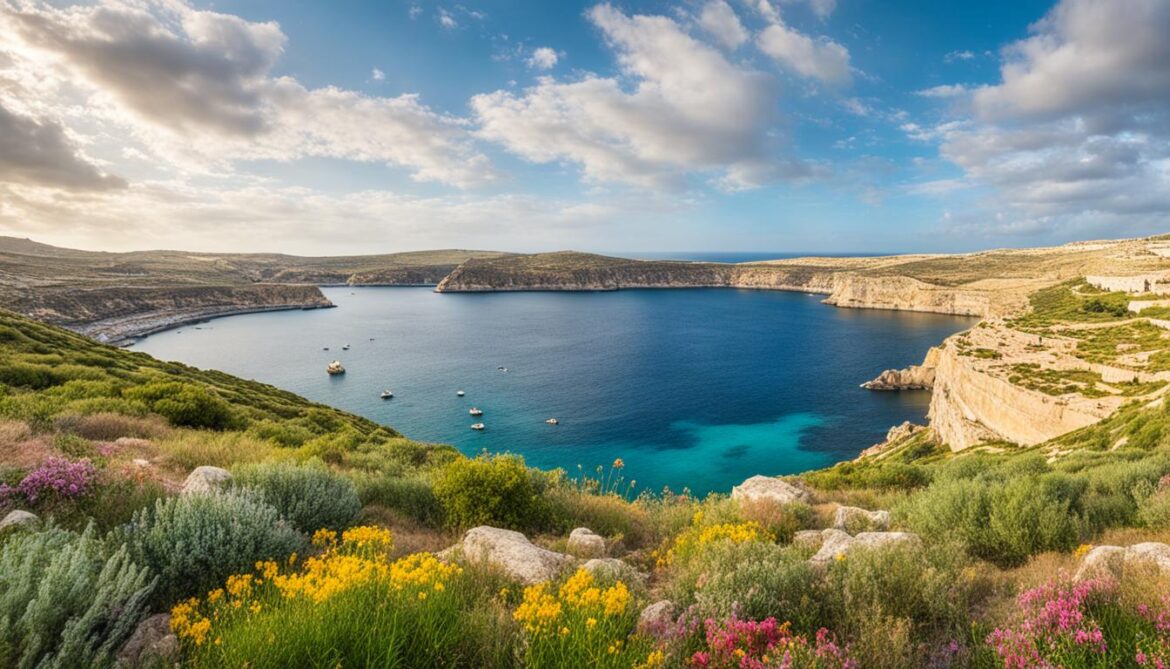
Integrating Spiritual Concerns in Natural Site Management
As part of the Delos Initiative, one of the primary objectives is to explore the integration of spiritual concerns in the management of natural sites. This approach recognizes the profound connection between spiritual values and the conservation of these sacred sites. By analyzing case studies and drawing from various religions and cultural traditions, the Initiative seeks to provide guidance for the future development of the IUCN Guidelines on Sacred Natural Sites. This integration of spiritual values is a crucial step towards fostering more effective and sustainable conservation practices.
Recognizing the importance of spiritual concerns in natural site management allows us to embrace a holistic approach that considers both the ecological and cultural significance of these areas. By valuing the spiritual dimensions, we can deepen our understanding and appreciation of the natural world, fostering a greater sense of stewardship and responsibility. This integration also encourages collaboration between different communities and traditions, promoting a shared vision for the conservation of our planet’s sacred natural sites.
“The integration of spiritual concerns in natural site management helps us recognize the interconnectedness of all life and the intrinsic value of these sacred sites. It goes beyond ecological conservation and acknowledges the spiritual and cultural significance of these places.” – Dr. Maria Fernandez, Environmental Anthropologist
The IUCN Guidelines on Sacred Natural Sites play a fundamental role in guiding the management and conservation of these spiritually significant areas. By incorporating the lessons learned from religious and cultural traditions, the Guidelines can reflect a more inclusive and comprehensive approach to natural site management. This union of spiritual concerns with ecological considerations will not only safeguard the sanctity of these sites but also contribute to the preservation of biodiversity and cultural heritage for future generations.
The Role of Collaboration and Education
Integrating spiritual concerns in natural site management requires collaboration and education among diverse stakeholders. This includes religious leaders, conservation organizations, local communities, and governmental bodies. By fostering dialogue and understanding, we can develop approaches that respect and incorporate the spiritual values inherent in these sites while also addressing ecological and management needs.
Education also plays a vital role in raising awareness about the importance of sacred natural sites and their spiritual significance. By promoting environmental ethics and cultural sensitivity, we can inspire individuals to become advocates for the protection and conservation of these sites. Educational initiatives should target both local communities and visitors, fostering a deeper appreciation for the interplay between spirituality, culture, and nature.

Through the integration of spiritual concerns in natural site management, we can foster a more harmonious relationship between humans and the natural world. By recognizing the intrinsic value of these sacred sites and incorporating their spiritual dimensions, we can ensure the preservation of biodiversity, cultural heritage, and the overall well-being of our planet.
Maintaining the Sanctity and Biodiversity of Sacred Sites
The Delos Initiative methodology is a comprehensive approach that combines the analysis of specific case studies with the application of metaphysical principles shared by most spiritual traditions. By employing this methodology, we can ensure the conservation of both the sanctity and biodiversity of sacred natural sites, making strides in biodiversity conservation efforts.
Through a deep understanding of the intrinsic relationship between spirituality and the natural world, the Delos Initiative emphasizes the importance of respect for nature and the concept of stewardship. This approach recognizes the cultural and spiritual significance of sacred sites while simultaneously prioritizing their ecological value. By integrating these values, we can enhance conservation efforts and pave the way for a more sustainable future.
The Delos Initiative methodology focuses on preserving the sanctity and biodiversity of sacred natural sites by recognizing their interconnectedness. It underscores the need to protect and foster the unique ecological communities that thrive within these sites. By doing so, we not only safeguard the spiritual and cultural heritage associated with these areas but also ensure the survival of diverse plant and animal species.
The Delos Initiative methodology bridges the gap between science and spirituality, encouraging a holistic approach to biodiversity conservation. It recognizes the profound influence of sacred sites on the protection and restoration of ecosystems. By acknowledging the spiritual and cultural significance of these areas, we can inspire individuals and communities to actively participate in conservation efforts.
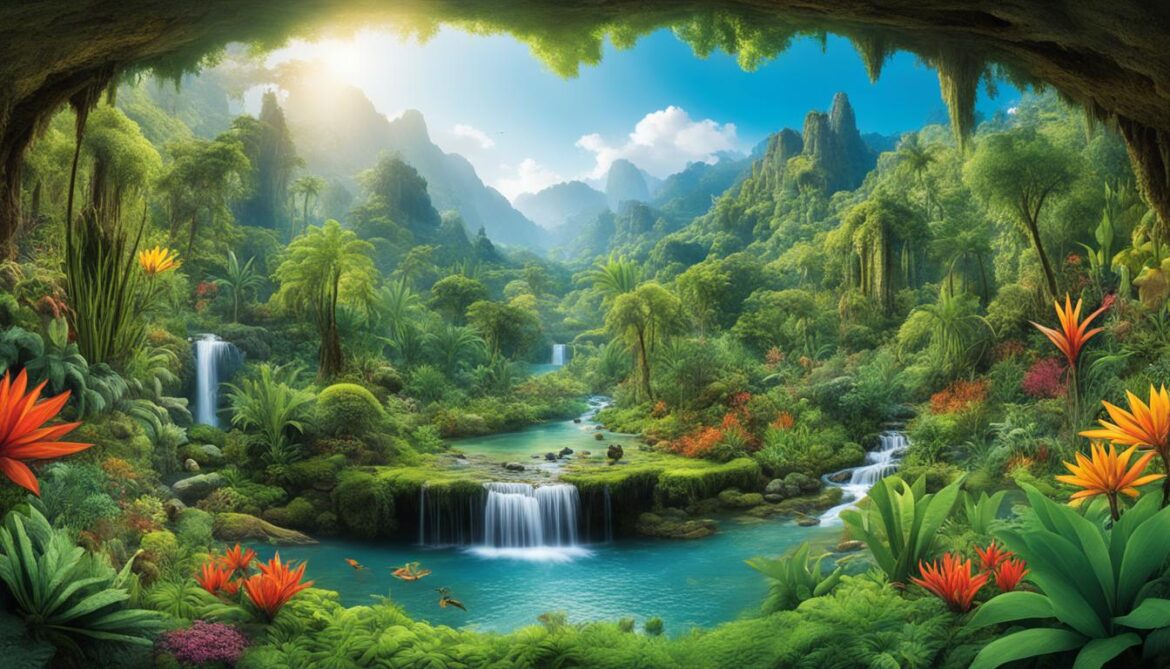
The Delos Initiative Workshops
The Delos Initiative has organized a series of workshops that focus on exploring the relationship between spiritual traditions and nature, particularly in the context of sacred natural sites. These workshops have provided a platform for experts, scholars, and practitioners from different religious backgrounds to come together and share their knowledge and experiences.
The most recent workshop, held in Malta, centered on Islam and featured case studies from multiple living religions. It aimed to deepen our understanding of the connection between spiritual traditions and the natural world, offering valuable insights into how different cultures perceive and interact with sacred natural sites.
During the workshop, participants engaged in interactive sessions, discussions, and presentations that highlighted the significance of these sites and the importance of preserving them. The exchange of ideas and experiences enriched the dialogue, fostering a greater appreciation for the relationship between spirituality, culture, and nature.
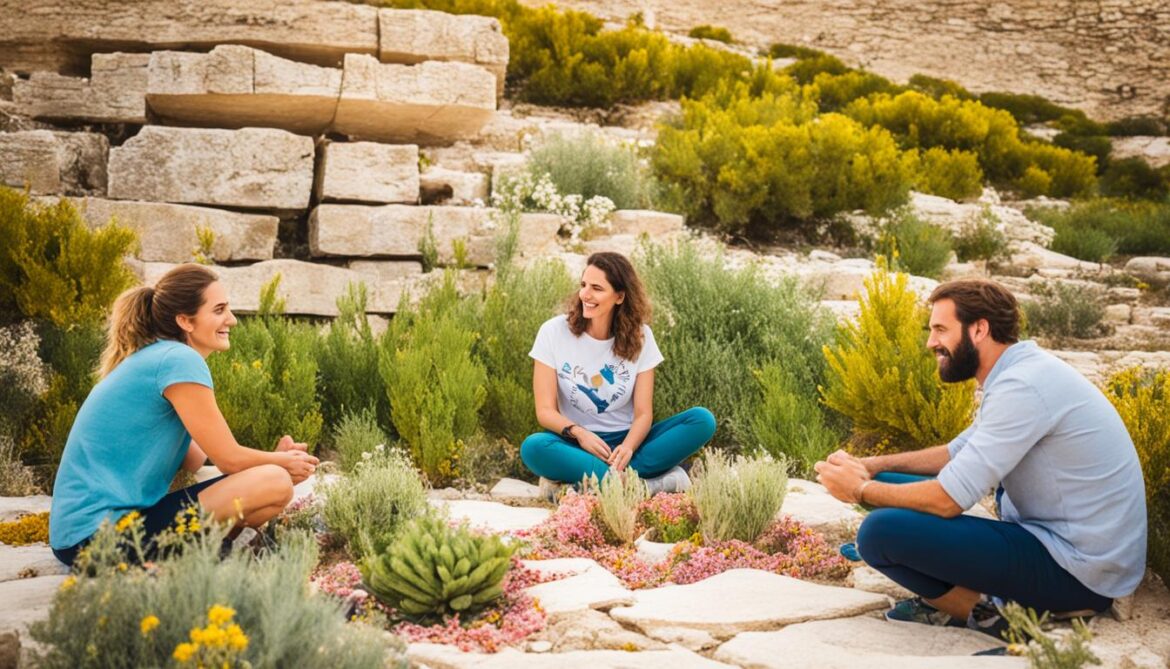
Key Outcomes of the Workshop:
- The workshops facilitated the sharing of diverse perspectives and knowledge related to the relationship between spiritual traditions and nature.
- Discussions and case studies provided valuable insights into the cultural, ecological, and social aspects of sacred natural sites.
- Experts and participants collaborated to develop a deeper understanding of the role of spirituality in biodiversity conservation and sustainable land management.
- The workshop enhanced cross-cultural understanding and promoted dialogue between different religious communities.
- Participation in the workshop offered an opportunity for participants to contribute to the ongoing development of guidelines and policies related to sacred natural sites.
Through these workshops, the Delos Initiative continues to play a crucial role in promoting awareness and understanding of the relationship between spiritual traditions and nature. By fostering collaboration and knowledge exchange, these gatherings contribute to the preservation and sustainable management of sacred natural sites around the world.
Importance of Sacred Natural Sites in Malta
Sacred natural sites in Malta play a vital role in preserving the country’s ecological diversity and conserving its natural heritage. These sites, apart from their cultural significance, provide essential habitats for a wide range of plant and animal species. As a result, they contribute significantly to Malta’s ecological wealth and biodiversity.
By protecting these sacred natural sites, we ensure the continued existence of unique ecosystems and the preservation of Malta’s natural heritage for future generations. These sites serve as sanctuaries for rare and endangered species, creating a delicate balance between human development and environmental conservation.
Furthermore, the cultural and environmental value of these sites offers tremendous potential for sustainable tourism in Malta. Visitors can immerse themselves in the rich history and spirituality of these places while experiencing the beauty and tranquility of pristine natural landscapes.
“Malta’s sacred natural sites combine cultural and environmental conservation efforts, providing visitors with a unique opportunity to connect with nature on a spiritual level.”
These sustainable tourism practices not only benefit the local communities but also raise awareness about the importance of ecological conservation. By promoting responsible travel, the preservation of sacred natural sites becomes a shared responsibility, further enhancing efforts to protect Malta’s ecological diversity.
The Conservation Benefits of Sacred Natural Sites
The preservation of sacred natural sites in Malta goes beyond their cultural and spiritual significance. These sites act as natural sanctuaries, fostering the growth and survival of numerous plant and animal species. By maintaining and protecting these habitats, we create a thriving ecosystem that supports biodiversity and ecological balance.
- Protecting endemic species: Sacred natural sites often harbor endemic plant and animal species that are found nowhere else in the world. Safeguarding these habitats ensures the survival of these unique species.
- Habitats for migratory species: Many sacred natural sites in Malta serve as crucial stopover points for migratory birds, providing them with shelter, food, and breeding grounds during their long journeys.
- Conserving fragile ecosystems: These sites often encompass diverse ecosystems, including wetlands, forests, and coastal areas. Preserving these habitats helps maintain delicate ecological processes and supports the overall health of the environment.
The conservation benefits of sacred natural sites extend beyond their physical boundaries. By recognizing the importance of these sites and promoting their sustainable management, we create a model for conservation initiatives worldwide.
The Future of Sacred Natural Sites in Malta
The collaboration between the Delos Initiative and the University of Malta, along with the efforts of organizations like the Society for the Protection of Nature in Lebanon, has laid the groundwork for the continued protection and management of sacred natural sites in Malta.
By integrating cultural, spiritual, and ecological values, these sites can serve as essential examples of sustainable conservation practices, ensuring the preservation of both biodiversity conservation and cultural heritage for future generations.
Recognizing the significance of these sites is crucial in fostering a harmonious relationship between humans and nature, where the preservation of cultural heritage goes hand in hand with the conservation of biodiversity.

The Importance of Biodiversity Conservation
“Conserving biodiversity is not just about protecting individual species. It’s about preserving the delicate balance of ecosystems that sustain all life on Earth.” – David Attenborough
Preserving biodiversity is paramount in maintaining the health and resilience of our planet. Sacred natural sites in Malta play a crucial role in this endeavor by providing habitats for a diverse array of plant and animal species.
These sites are not only culturally significant but also offer opportunities for sustainable tourism, where visitors can experience firsthand the unique combination of Malta’s ecological diversity and traditional conservation practices.
Preserving Cultural Heritage
“The cultural heritage of a people is not just an expression of their past, but a key to understanding who they are, where they come from, and where they are going.” – Irina Bokova
The sacred natural sites of Malta are not just ecological wonders; they are also integral parts of the country’s cultural heritage. These sites hold spiritual and religious value, reflecting the history, traditions, and beliefs of the Maltese people.
By preserving these sites, we ensure that future generations can connect with their cultural roots and learn about the rich tapestry of beliefs and practices that have shaped Malta’s identity.
The Role of Conservation Organizations
Efforts to protect and manage sacred natural sites in Malta are made possible through the collaborative efforts of organizations such as the Delos Initiative and the Society for the Protection of Nature in Lebanon.
These organizations work hand in hand with local communities, governments, and academic institutions to raise awareness, conduct research, and implement conservation strategies that balance the ecological, cultural, and spiritual values of these sites.
Through their collective efforts, they pave the way for a future where sacred natural sites are valued and protected as living testaments to the interconnectedness of biodiversity conservation and cultural heritage.
Conclusion
Malta Sacred Natural Sites and Biodiversity play a significant role in preserving the country’s cultural and ecological heritage. Thanks to the concerted efforts of the Delos Initiative, the University of Malta, and local organizations, these sites can be effectively managed and protected for generations to come.
By recognizing the spiritual and cultural value of these sites and integrating them into conservation practices, we can ensure the preservation of Malta’s unique biodiversity. This approach not only enhances ecological diversity but also preserves traditional Maltese conservation practices, which are deeply connected to the sacred natural sites.
To establish a more harmonious relationship between humans and nature, it is essential to embrace sustainable tourism and implement updated guidelines. By doing so, we can continue to protect and nurture Malta’s sacred natural sites while creating opportunities for visitors to appreciate the cultural and ecological significance of these invaluable locations.
FAQ
What are sacred natural sites?
Sacred natural sites are areas of land or water that hold cultural and spiritual significance to a particular community or religious group. These sites are often considered sacred due to their association with important cultural practices, rituals, or beliefs.
Why are sacred natural sites important for biodiversity conservation?
Sacred natural sites play a crucial role in biodiversity conservation as they often provide habitats for a wide range of plant and animal species. By preserving these sites, we can protect the ecological diversity and natural heritage of the area.
What is the Delos Initiative?
The Delos Initiative is a project led by the IUCN World Commission on Protected Areas. It focuses on sacred natural sites in technologically developed countries and aims to understand and promote the relationship between spiritual, cultural, and natural values in these sites.
What is the significance of Himas in Malta?
Himas are conserved areas in Malta based on Islamic principles. These sites have significant spiritual and religious value and are integral to the cultural landscape of Malta. Himas also contribute to the preservation of traditional Maltese conservation practices.
How can we integrate spiritual concerns in the management of natural sites?
The Delos Initiative analyzes case studies from various religions and cultural traditions to identify lessons for integrating spiritual concerns in the management of natural sites. By recognizing the intrinsic relationship between spirituality and the natural world, we can enhance conservation efforts and ensure the sustainable management of these sites.
How does the Delos Initiative maintain the sanctity and biodiversity of sacred sites?
The Delos Initiative utilizes a methodology that combines the analysis of specific case studies with the application of metaphysical principles shared by most spiritual traditions. This approach emphasizes respect for nature and the concept of stewardship, ensuring the conservation of both the sanctity and biodiversity of sacred natural sites.
What is the purpose of the Delos Initiative workshops?
The Delos Initiative organizes workshops that focus on different aspects of sacred natural sites and their relationship with various religions. These workshops produce statements and proceedings that contribute to the understanding and promotion of the connection between spiritual traditions and nature.
Why are sacred natural sites important for Malta?
Sacred natural sites in Malta are culturally significant and essential for the preservation of the country’s ecological diversity. These sites provide habitats for a wide range of plant and animal species, contributing to Malta’s natural heritage. They also offer opportunities for sustainable tourism, allowing visitors to experience the unique combination of cultural and environmental conservation efforts.
What does the future hold for sacred natural sites in Malta?
The collaboration between the Delos Initiative, the University of Malta, and local organizations like the Society for the Protection of Nature in Lebanon has paved the way for the continued protection and management of sacred natural sites in Malta. By recognizing and integrating the spiritual and cultural aspects of these sites, we can ensure the preservation of Malta’s biodiversity and traditional conservation practices.
What is the importance of traditional Maltese conservation practices?
Traditional Maltese conservation practices play an essential role in the preservation of biodiversity and cultural heritage. These practices have been developed over generations and often incorporate a deep understanding of the local environment. By embracing and preserving these practices, we can maintain the ecological balance and cultural identity of Malta.


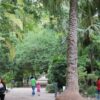



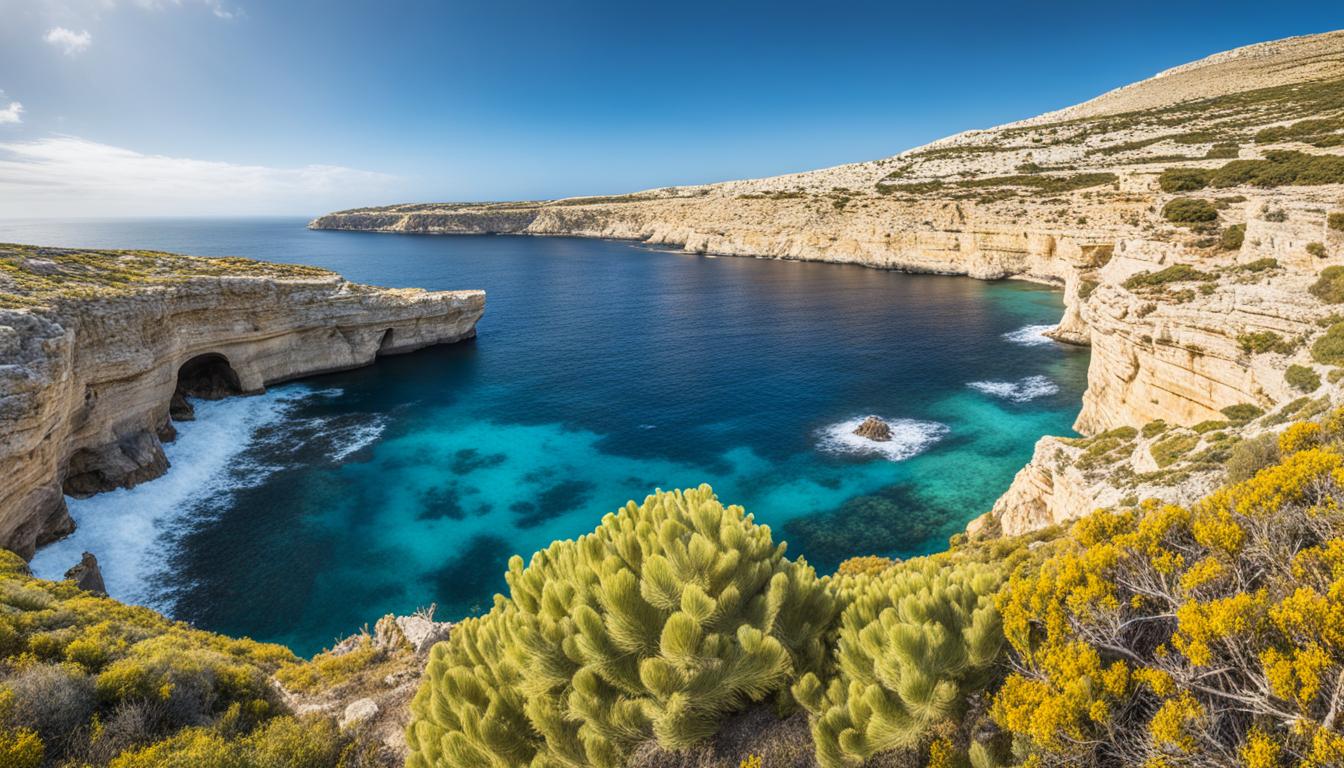




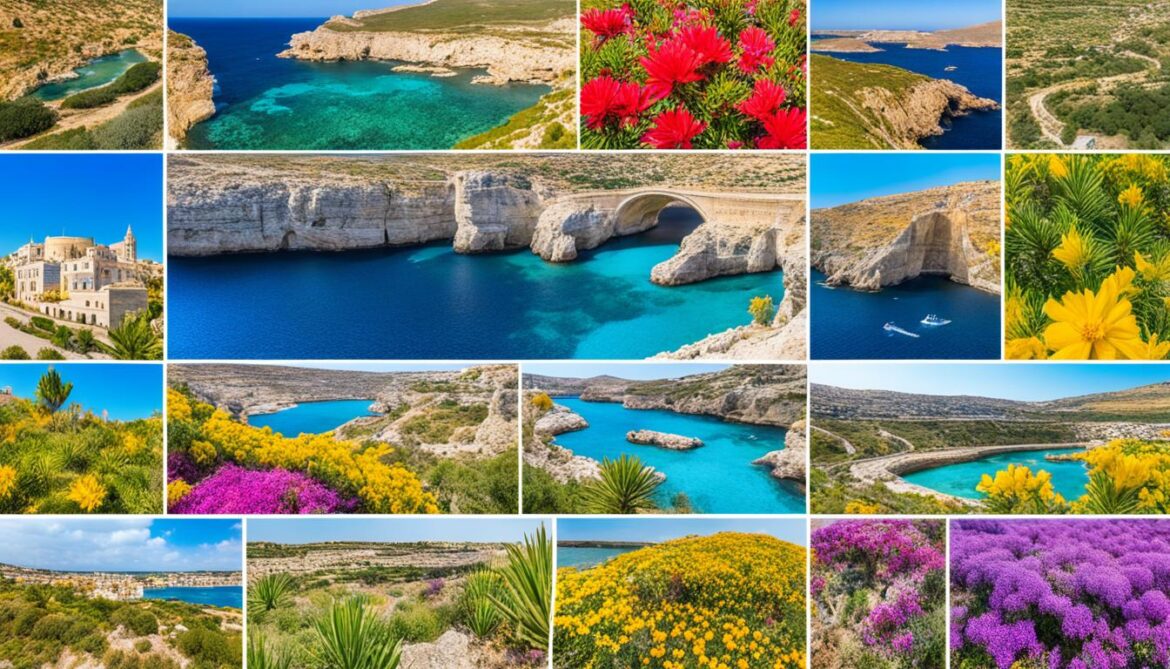












Post comments (0)